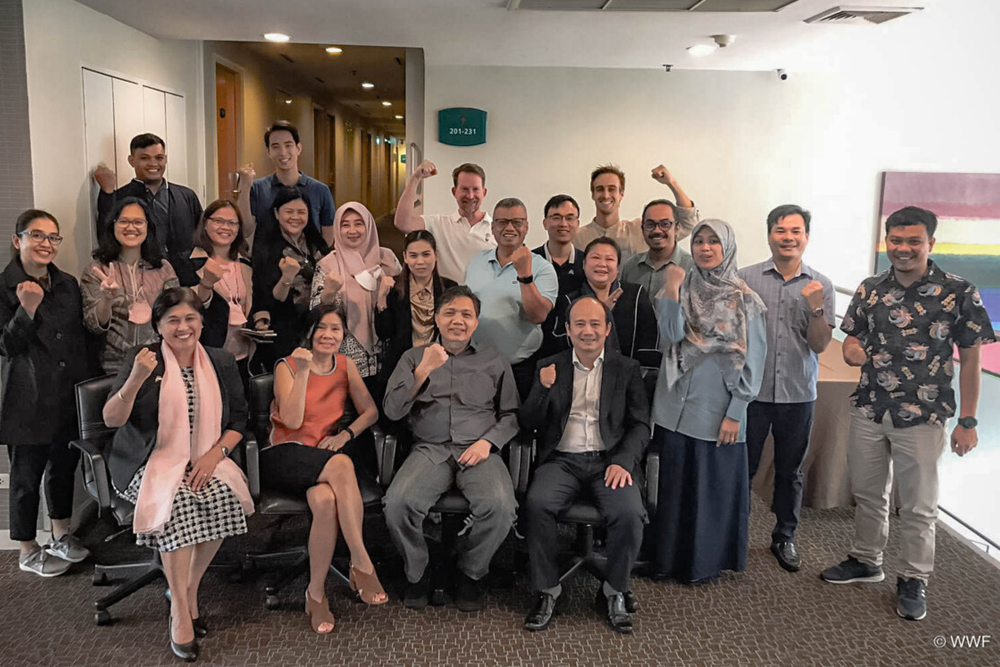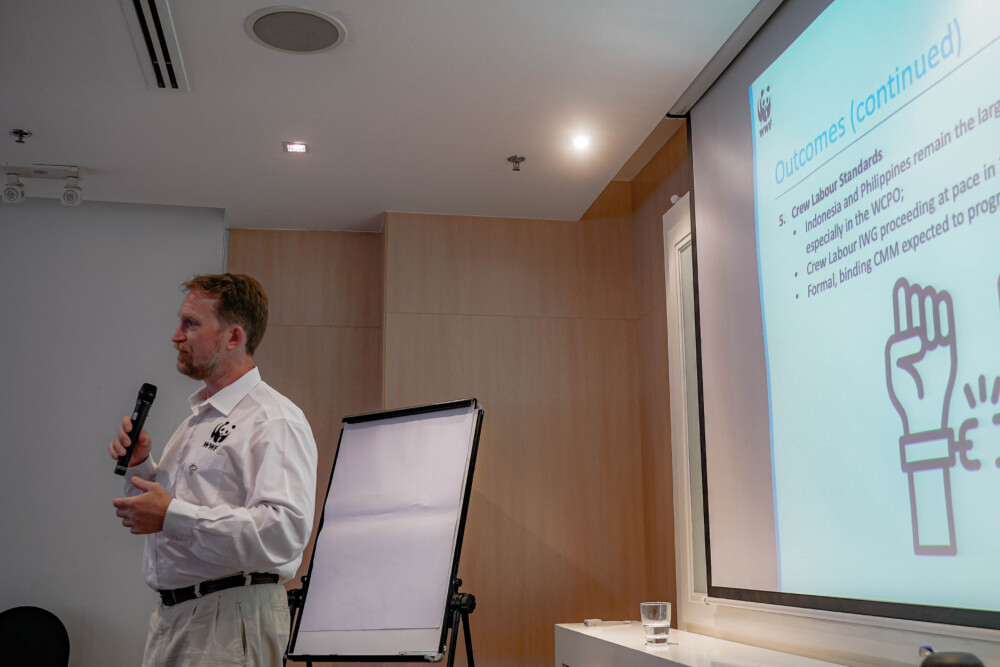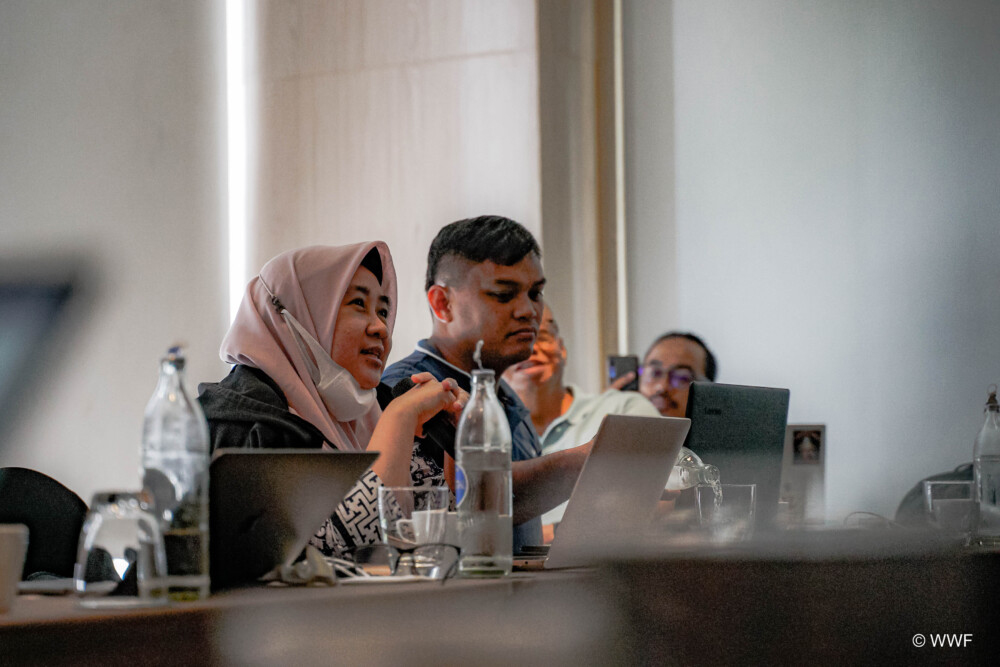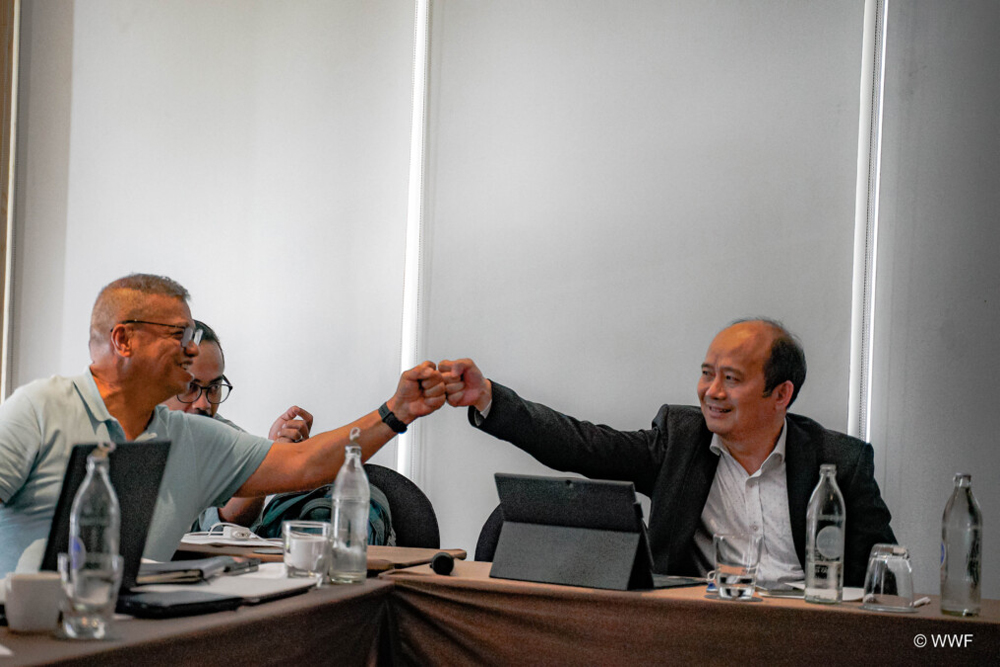Bangkok, Thailand – Government representatives and experts in fisheries from the Philippines, Indonesia and Vietnam held a dialogue meeting in Bangkok, Thailand, to discuss their shared yellowfin tuna stock and key issues in transboundary fishery management.
Held 15 – 16 February, the meeting builds upon a first dialogue in Manila in August 2022, in which delegations from Indonesia and the Philippines discussed common pathways towards the sustainable management of yellowfin tuna as a highly migratory species.
“Yellowfin is important for the three countries, especially for the Philippines which is dominated by small-scale fisheries such as tuna handliners handling small boats and operating in archipelagic and internal waters. Although the countries have divergent interests and issues, you can see that our fisheries unite us,” said Rafael Ramiscal, Chief of the Capture Fisheries Division (CFD) of the Philippines’ Bureau of Fisheries and Aquatic Resources (BFAR).
Between the two Coral Triangle countries, tuna is a critical transboundary resource for their economies, particularly the yellowfin. Philippine municipal fisheries harvested 32,240 metric tons of yellowfin tuna in 2020. In Indonesia, 446,902 metric tons of yellowfin tuna were harvested in that same year.
Meanwhile yellowfin tuna became Vietnam’s most important wild-capture export product in 2022, producing nearly 18,000 metric tons of caught fish.
In the spirit of increasing collaboration and strengthening regional fishery management, Viet Nam was invited to join this second dialogue, where delegates discussed challenges and best practices.
The issue of overfished fishery stocks was brought forward during the meeting. Reducing juvenile fish catch rates was highlighted as an important goal, as well as preventing Illegal, Unreported and Unregulated fishing activities in the region.
The meeting also highlighted the need for cross-boundary collaboration to better manage the region’s fisheries, particularly, for yellowfin tuna. Therefore, according to Fayakun Satria, the Director of Indonesia’s Fisheries Research Center (PUSRISKAN), “Although the three countries have different agendas, but as we are in the same region, we can identify similar issues and common positions to be discussed in regular meetings between us. For instance, as we already have a regional harvest strategy for Skipjack and its target reference points, so maybe we can start with the yellowfin tuna discussion by identifying which areas we can communicate”
The delegates also expressed their solidarity in conserving their shared fishery resources. The Indonesian, Philippine and Vietnamese delegates agreed to communicate best practices among one another, and proposed future meetings to further discuss fishery issues.
“There are benefits to open dialogue and collaboration between countries that face similar challenges and have common experiences or goals,” added Dr. Hai Duyen Vu, Deputy Director of the Capture Fisheries Department in Viet Nam’s Directorate of Fisheries (DFISH).






